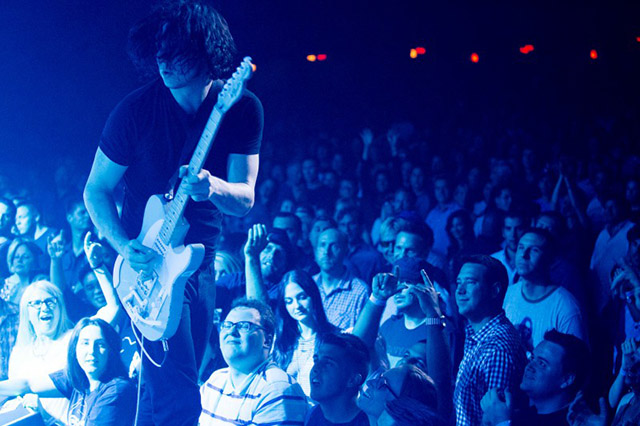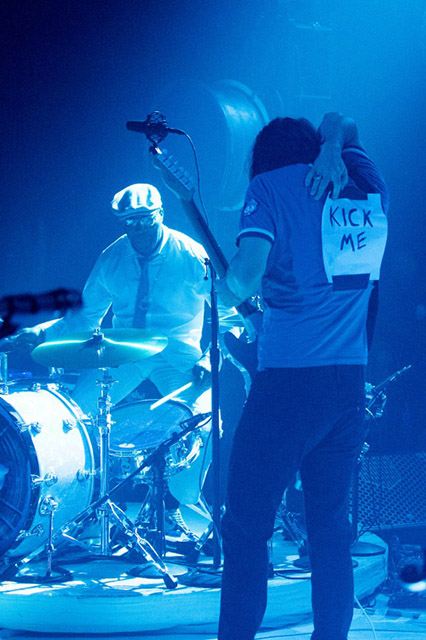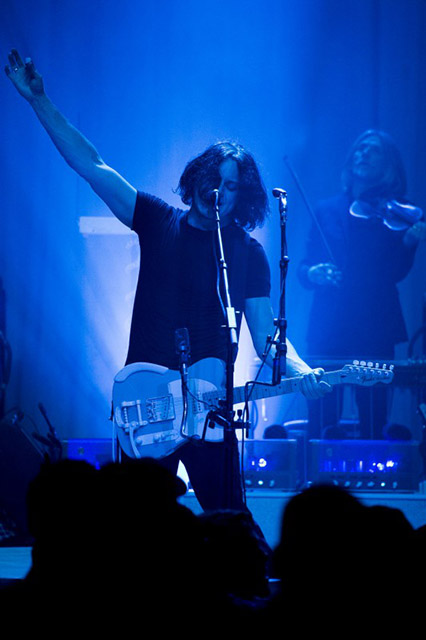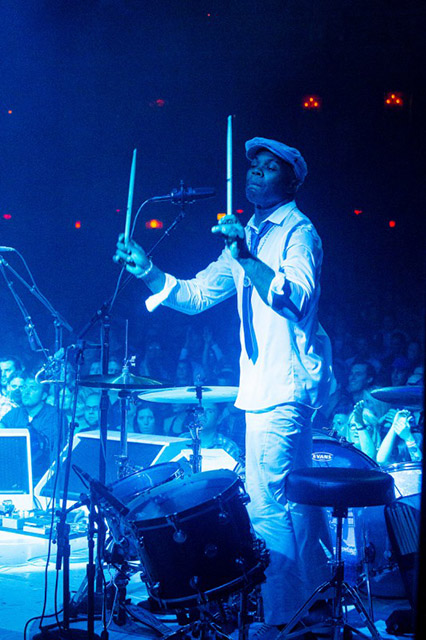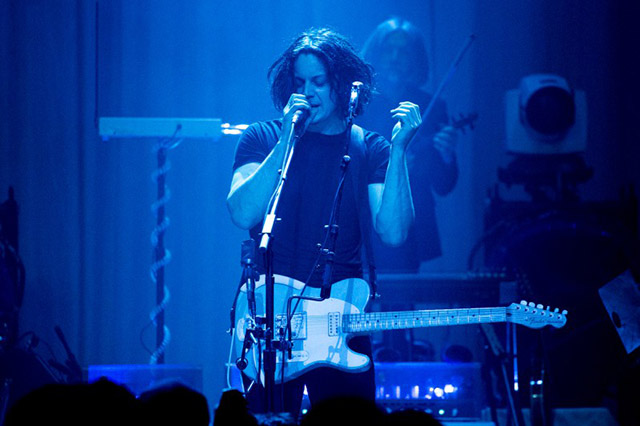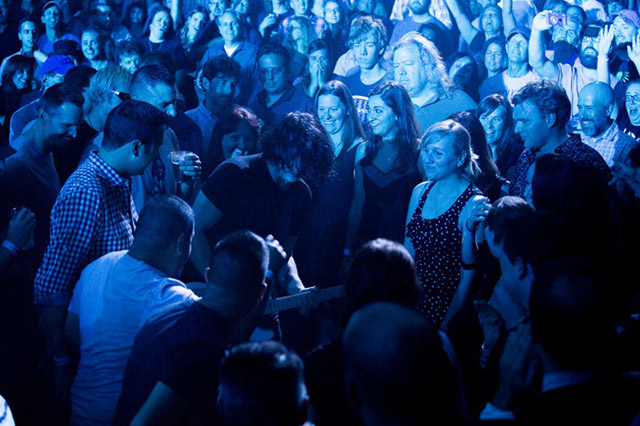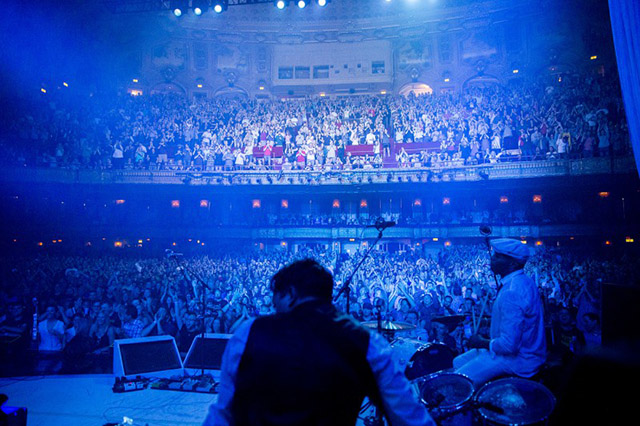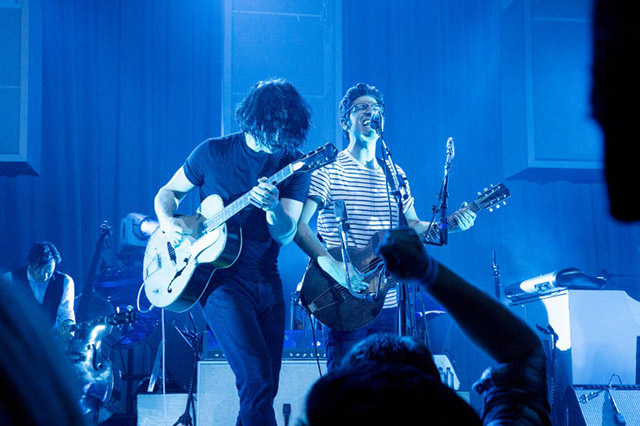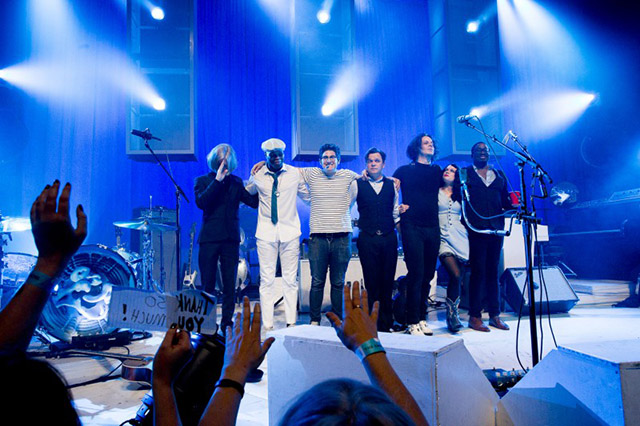Review: Jack White Smolders At Chicago Theatre
By Lizz Kannenberg in Arts & Entertainment on Jul 24, 2014 9:30PM
Jack White doesn’t appreciate your meme, but he’ll take your soccer chant.
White’s Wednesday show at the Chicago Theatre walked a fine line between a singalong-friendly career retrospective and a balls-to-the-wall display of blues rock virtuosity in support of his second solo effort, this year’s Lazaretto. The 39-year-old guitarist deftly led his band through nearly three hours of swerving, soaring, diving renditions of everything from White Stripes charmers like “We’re Going to Be Friends” to the brooding Dead Weather burner “Cut Like a Buffalo,” with stops everywhere in between.
Opener Benjamin Booker won over the early crowd with his growling, barn-burning approach to alt-country blues rock, combining I-IV-V progressions with throaty howls with a healthy dose of punkish speed and energy. Look for more from him the near future—his first release for ATO is due next month.
Booker’s inclusion on the tour signaled a shift in White’s perception of the role of theater in his own presentation. While every aspect of his first solo album, 2012’s Blunderbuss, felt like a carefully chosen accessory—including occasional tour openers Black Belles, a quartet of mysterious, heavily hatted beauties with questionable levels of talent that White “discovered” and threw his weight behind—the Lazaretto outings thus far seem more dedicated to musicianship than showmanship. White’s only admission that he’s paying attention to what the world thinks of him came during set opener “High Ball Stepper,” when he stalked onstage wearing the throwback Cubs jersey from the now-infamous image of him scowling at Wrigley on Tuesday night, with a sign that said “KICK ME” stuck to his back. But after one song it was back to the basics of White’s business: dark clothes, dark stage, dark interpretation of rock’s earliest incarnations.
The latter took several different forms throughout the 33-song omnibus of a set—the longest, according to Consequence of Sound, of his career. The band was more than happy to oblige White’s whims as he seemed to make up the setlist as he went along, indulging both the audience’s calls for gems from the past and his own appetite for plumbing America’s back catalogue for the rawest forms of blues, country and garage rock. White rolled out only five songs from Lazaretto, preferring instead to orchestrate a set heavy on White Stripes material from all points in band’s genre-redefining career. The stark innocence and childlike joy that made Stripes hits like “We’re Going to Be Friends” and “Hotel Yorba” so remarkable (with Meg White serving as Jack’s foil) fell a little flat in translation, but White’s band of crack session players from Detroit and Nashville had much better results with his former band’s material when tackling true blues arrangements like “Ball and Biscuit” and more complex rockers like “Icky Thump” and “Blue Orchid.” White also peppered the set with glimpses of his own musical influences, including Muddy Waters’ “Got My Mojo Working,” Hank Williams’ “You Know That I Know” and even a ballsy refrain of Jimi Hendrix’s “Manic Depression.”
Despite the lengthy setlist and multiple indulgent, extended jams, the crowd stuck with White and his band ‘til the bitter end. He rewarded them with a ceiling-shaking, crowd-driven version of the World Cup theme song “Seven Nation Army” to close out the night, even bringing a lucky and clearly reverent fan onstage to play along on the most iconic riff from one of the most iconic guitarists of our generation.
At one point White noted that “If you drive down Michigan Avenue and keep going til the end, you’ll wind up in Detroit.” His set last night proved that White himself may be the human equivalent of Michigan Avenue: The most clear and direct link we have between the prodigious blues tradition that Chicago birthed and nurtured and the gritty, naked interpretation of rock that Detroit laid bare in the '60s. And after years of carefully constructing a series of fantastical vehicles for his music, White finally seems ready to embrace that legacy by getting out of his own way.
